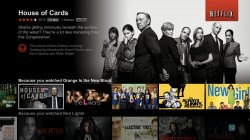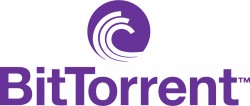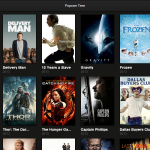Hello again. Hope you’ve had a good and productive week. Or just a good one, as being productive is way overrated. Speaking of productivity, I enjoyed writing last week’s “the news that wasn’t” section, where I went through the news stories that didn’t quite make it into a fully fledged write-up, and I think I’ll make that a regular feature from now on.
We start with the news that Pirate Bay co-founder Peter Sunde has been arrested in Sweden to serve out his outstanding copyright violation sentence. Sunde has been on the run for two years since the original sentence was handed down, and was finally caught in the southern Swedish county of Skane. He now has to serve his 8 month sentence.
Skipping to the world of video streaming, Netflix has now enabled HTML5 streaming on Safari in the just announced OS X Yosemite beta. This means that users of the still being tested OS X version can now stream Netflix in their Safari browsers without the need for a third-party plug-in. With playback completely integrated into the browser and the operating system, Apple says this will mean increased battery efficiency, up to two extra hours of streaming content in some cases.
Finally, we have two Xbox One related stories (in addition to the one we cover in detail below). With Xbox One dropping Kinect as a mandatory requirement, ironically, the PC now gets official Kinect 2.0 support. But before you get yourself ready for a bit of PC motion gaming, or dream about controlling Windows 8.1 Minority Report style, the $199 Kinect 2.0 kit would only be for developers seeking to make games and apps for the Xbox One. Another release that is a bit more useful for the average user is the official release of PC drivers for the Xbox One controller. Users can now connect their controller via a micro USB cable and play any PC games that already has official support for the Xbox 360 controller.
Now on to the main attraction …
![]()
Are you breaking the law if you watch a pirated stream online? Most people don’t seem that bothered with the answer to this particular question, choosing to watch pirated shows online regardless. Some do hold the believe that streaming is less illegal than downloading, or not illegal at all. And you know what, it seem they’re right! Streaming is not copyright infringement.
A EU court ruling has confirmed that streaming isn’t the same as copying, mainly because technically, a copy isn’t made at all when you stream something online. The cached content, or temporary copy, is specifically exempt from existing EU copyright laws and so users are not breaking any laws, even if they’re watching that particularly distressing scene in an recent episode of Game of Thrones (urgh … so harsh).
What is still very much illegal is offering those streams in the first place, so don’t even think about it!
——
Just last week, Spotify mentioned that music piracy rates in Sweden has dropped significantly thanks to services like Spotify. And this week, data released by the Lund University (with help from The Pirate Bay) backs up their assertions and directly credits services like Spotify for helping change the trend.
Most notably, 1 in 3 young Swedes say they’ve never even bothered to do any file sharing, and the researchers credit the changing attitudes of young people to new legal services like Spotify and Netflix. With the survey finding that fewer people are concerned about the legal ramifications of piracy than ever before, it definitely seems like viable legal alternatives, and not legal sanctions, seems to be the more effective in changing the habits of young Internet users.
Which again flies in the face of the assertions made by Australian royalty collection organisation APRA AMCOS last week that legal alternatives are ineffective in stopping piracy. Rights holder groups in Australia are currently pushing the government to introduce new harsher laws and new punishment and censorship regimes, so anything to discredit the effect of industry based solutions like Spotify (but no Netflix in Australia, yet) would be welcomed at this time.
![]()
It seems Microsoft’s decision to dump Kinect 2.0 from being a mandatory part of the Xbox One has paid dividends for the company, not just on the price battle front with the PS4. By removing Kinect 2.0 from being an integral part of the Xbox One operating system, GPU power reserved for the motion gaming system can now be accessed by developers to boost gaming performance, by as much as 10%.
So much for Microsoft’s previous claims that Kinect 2.0 has its own resources and that is won’t negatively impact on system performance. Yet all this time, Kinect 2.0 was at the same time both costing Microsoft precious U.S. market share by making the Xbox One $100 more expensive than the PS4, and also robbing it of crucial system resources.
Microsoft’s Major Nelson, aka Larry Hryb, was keen to point out that the extra performance doesn’t just come from unplugging Kinect – developers have to add code to their games in order access the new found reserves, so don’t all rush to unplug that Kinect camera you probably never use and expect instant miracles.
——
That’s it for this week. Talk to you again soon.










